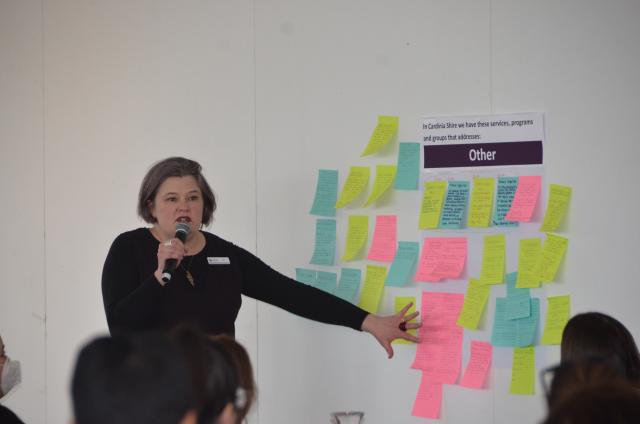
THE ROAD TO RESPECT By Shelby Brooks
Everybody in the community has a part to play in helping people experiencing family violence, particularly in spreading awareness about services available within the area.
Chief executive of Women’s Health in the South East (WHISE) Kit McMahon said a barrier to family violence response and assistance was ensuring victims knew services within the community existed.
To guarantee victims were aware of services out there that can help them, Ms McMahon said the broader community had to help.
Using a young girl ‘Raffa’ as an example, Ms McMahon said: “Part of improving Raffa’s wellbeing and the wellbeing of her family is making sure the community, like the teacher, the pharmacist, the physio, the dog groomer, the travel agent, the hairdresser- know services like the Orange Door exists”.
“For Raffa and her family, the more they know these services exist and the more the community knows around them that they exist, the better chance we’ve got to providing that family support and wellbeing.”
Cardinia Shire Council collective impact facilitator Fiona Cost explained further.
“We’re all connected in some way. Everybody plays a part,” she said.
“Think about your own daily life- your kids go to school, you might go to the bank, your children go to a sporting club, you might visit a library. We are all connected to bigger parts than just our workplace.
“We need this service mapping so that it informs us and challenges us to inform a whole heap of other people.
“We want people to know what places to h to get help and heal and let people know they aren’t on their own. There is local help out there willing and wanting to help.”
By categorising different services under umbrellas such as ‘behaviour and/or anger management’, ‘bystander action’ and ‘primary prevention’, the community is also able to identify gaps, Ms Cost said.
“It helps us identify gaps we might have so we know what to then advocate for.”






